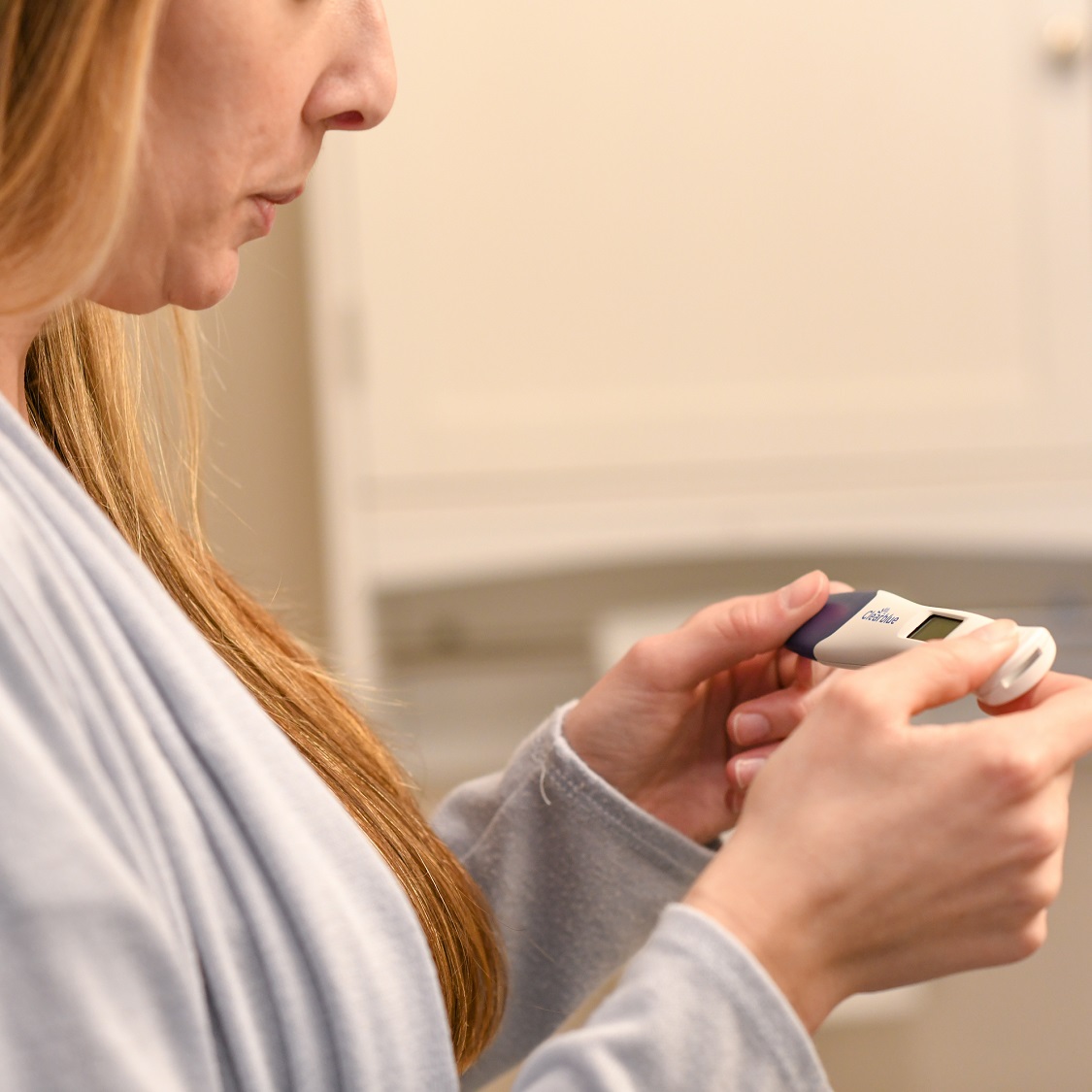What Causes the Baby Blues? How to Reset Your Brain

August 17, 2022
Pregnancy, childbirth, breastfeeding – your body goes through a whirlwind of hormonal changes, and approximately 80% of postpartum mothers experience the baby blues.
What are the “baby blues” and why does it happen?
The baby blues can be identified as symptoms including:- Sadness, or crying for no clear reason
- Mood swings or irritability
- Anxiety or feeling restless
- Difficulty concentrating
“During pregnancy, and after the birth of your child, your body goes through immense hormonal shifts,” shares maternal fetal medicine expert, Antonia Francis Kim, M.D.
Estrogen and progesterone are at play – during pregnancy these hormones are steadily climbing, and after pregnancy they drop drastically. That dramatic change is what can trigger ‘the blues’.
How to get through the baby blues:
-
Know that this is normal
“Give yourself some grace – that is the most important. You have just created and birthed a human life, it is normal to be experiencing a lot of emotions,” says Dr. Kim. “This also goes for all of our parents, moms, dads and partners, bringing a new child into your lives is a big change and can take time to adjust.”
-
Don’t forget about your needs
While you have a new baby to care for, don’t forget about your daily core needs like eating, sleeping and showering.
“Lean on support systems, like your partner, parents, friends, siblings, neighbors, anyone who is close to you who can offer a helping hand,” adds Dr. Kim. “If possible, allow someone else to feed the baby, do laundry, or run out for groceries so you can use that time to recharge.”
-
Don’t be afraid to ask for help
If you notice you’re not feeling like yourself, or are overwhelmed, don’t hesitate to share this with your health care provider.
“Know that there is hope and there’s nothing to be ashamed of – moms tend to carry a lot of guilt, thinking they need to handle everything on their own. Your OB GYN, maternal fetal medicine physician or primary care doctor can help guide you in the right direction to finding the help you need,” says Dr. Kim.
How are the baby blues diagnosed?
Before conception, it’s helpful to have had a mental health screening, as well as a run through of your family’s health history, in addition to all the other physical health screenings you may get,” mentions Dr. Kim. “If you’ve had depression in the past, you may be more likely to experience the baby blues.”
Before and after birth, most doctors will use a screening tool to help gauge how you are feeling, including questions surrounding:
- Feelings of happiness
- Ability to laugh and enjoy things
- Self blame
- Anxiety and feelings of panic
- Difficulty sleeping
- Feeling overwhelmed or sad
- Crying or thoughts of self-harm
Are the baby blues and postpartum depression the same?
The main differentiators between the baby blues and postpartum depression are timing and severity of symptoms.
“If you experience some feelings of fatigue or sadness for a few days up to two weeks after birth, that may be the baby blues, however if these symptoms persist or get more intense, then it may be considered postpartum depression,” says Dr. Kim.
What kind of treatments are there for the baby blues?
“In many cases, the baby blues will pass in a week or so, however if feelings continue, you should seek help,” advises Dr. Kim.
In addition to self care, your provider may recommend treatment options like cognitive behavioral therapy (a common form of talk therapy) or medications.
Next Steps & Resources:
- Meet our source: Antonia Francis Kim, M.D.
- To make an appointment with Dr. Kim or a maternal fetal medicine specialist near you, call 800-822-8905 or visit our website.
The material provided through HealthU is intended to be used as general information only and should not replace the advice of your physician. Always consult your physician for individual care.
Find a doctor near me
Can You Avoid Postpartum Depression?

Avoid postpartum depression? Learn steps to support your well-being. Get expert advice from Lauren Murphy, MSN, RN. Call 800-822-8905 for help.
What Makes a Pregnancy High-risk?

High-risk pregnancy? Learn about conditions impacting pregnancy from Drs. Schultz & Koscica. Get expert guidance and resources for healthy pregnancies.
Find a doctor near me

What Does Postpartum Depression Feel Like?
Understand postpartum depression symptoms? Learn about anxiety, sadness, and sleep issues. Support is available. Call 800-822-8905.

Why am I Not Getting Pregnant When Everything is Normal?
If you and your partner know that each of your reproductive systems is healthy, here are some possible reasons why you haven’t been successful just yet.

Can You Breastfeed With Implants?
Breastfeeding with Implants? Dr. Kim offers advice on successful breastfeeding, even with implants. Learn how implant location impacts milk supply and get support. Call 800-822-8905.

How Early Can a Baby Be Born?
Learn about premature birth. JFK Medical Center experts explain survival rates and potential long-term challenges. Get expert care.
